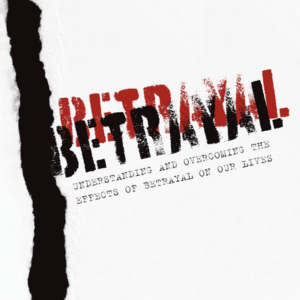Betrayal: Understanding & Overcoming Its Deep Effects

In a world where trust is the foundation of most human relationships—be it personal, professional, or spiritual—betrayal can be one of the most painful experiences we face. Teresa Brideau’s book “Betrayal: Understanding and Overcoming the Effects of Betrayal on Our Lives” delves deeply into this complex emotional wound, offering readers not only a comprehensive understanding of betrayal but also practical tools to heal from it.
With insightful forewords by Luke Walters and Sandy Walters, both respected voices in Christian counseling and leadership, the book takes a holistic approach—combining psychological insights with spiritual wisdom. The structure of the book is divided into two parts across seven chapters, each building upon the last to guide readers through the process of recognizing betrayal, confronting its effects, and ultimately finding healing and restoration.
This review will explore the key ideas from each chapter, summarize the overarching themes, and highlight the transformative message that Teresa Brideau seeks to convey to her readers.
Part I: Recognizing the Pain of Betrayal
Chapter 1: The Hidden Wound
Brideau begins the book by introducing betrayal as a “hidden wound”—a trauma that often goes unrecognized or misunderstood. She explains how betrayal doesn’t always come in dramatic forms like infidelity or deceit; sometimes it’s subtle, such as broken promises, unmet expectations, or emotional abandonment.
The author emphasizes that betrayal can occur in any relationship—spousal, parental, friendship, workplace, or even within religious communities. This first chapter sets the tone for the rest of the book by helping readers identify betrayal in their own lives and understand its deep psychological impact.
Key Takeaway:
- Betrayal is not just about actions—it’s about the breaking of trust.
- Many people suffer silently because they don’t recognize betrayal for what it is.
- Acknowledging the pain is the first step toward healing.
Chapter 2: The Emotional Fallout
Once betrayal is identified, the next logical step is to explore its emotional consequences. In Chapter 2, Brideau dives into the intense emotions that betrayal triggers—anger, confusion, shame, grief, and even depression. She explains how these feelings are normal responses to an abnormal situation.
Using real-life examples and case studies, she illustrates how betrayal can lead to self-doubt and identity crises. Readers begin to see how betrayal affects not only our current relationships but also how we view ourselves and the world around us.
Key Takeaway:
- Betrayal disrupts our sense of safety and stability.
- Emotions like anger and sadness are valid and need to be processed, not suppressed.
- Healing requires giving ourselves permission to feel without judgment.
Chapter 3: The Spiritual Impact
Betrayal isn’t just an emotional crisis—it can also become a spiritual crisis. In this chapter, Brideau explores how betrayal often shakes our faith, especially if we’ve placed trust in people who were supposed to represent integrity, love, or divine values.
She discusses how betrayal by spiritual leaders, mentors, or even family members can cause individuals to question their beliefs about God, community, and purpose. This chapter is particularly poignant for readers dealing with spiritual abuse or disillusionment.
Key Takeaway:
- Betrayal can lead to spiritual disconnection or doubt.
- Faith can be a source of healing, but only when we confront our pain honestly.
- Reconnecting with spirituality requires rebuilding trust at a deeper level.
Part II: Moving Toward Healing and Restoration
Chapter 4: Facing the Truth
Healing begins with truth. Chapter 4 encourages readers to confront the reality of the betrayal head-on. Brideau stresses the importance of acknowledging what happened without minimizing or rationalizing it. Denial, she argues, only prolongs suffering.
She provides practical exercises to help readers reflect on the incident, assess the damage, and begin the process of emotional detoxification. This includes journaling prompts, guided questions, and reflection tools that help readers articulate their experience.
Key Takeaway:
- Avoidance keeps us trapped in cycles of pain.
- Honesty is essential for healing.
- Writing and reflection can be powerful tools for emotional clarity.
Chapter 5: Forgiveness Is Not What You Think
One of the most controversial and misunderstood topics in recovery from betrayal is forgiveness. In Chapter 5, Brideau challenges common misconceptions about forgiveness—especially the idea that forgiveness means reconciliation or excusing the behavior.
Instead, she presents forgiveness as a personal journey—a decision to release bitterness and reclaim peace. She distinguishes between forgiveness and trust, emphasizing that while we can forgive someone, we are not obligated to trust them again.
Key Takeaway:
- Forgiveness is a gift to yourself, not your betrayer.
- It does not require forgetting or condoning the betrayal.
- True forgiveness leads to inner freedom, not necessarily external reconciliation.
Chapter 6: Restoring Trust in Yourself and Others
After betrayal, trust is shattered—not just in others, but in ourselves. Chapter 6 focuses on rebuilding that trust. Brideau offers strategies for setting healthy boundaries, improving self-awareness, and gradually learning to trust again.
She addresses the fear of being hurt again and encourages readers to take small, intentional steps toward re-engaging in relationships. This chapter also touches on the importance of surrounding oneself with trustworthy people and communities.
Key Takeaway:
- Trust must be rebuilt slowly and intentionally.
- Healthy boundaries are essential for future relationships.
- Self-trust is the foundation of all other trust.
Chapter 7: Finding Purpose in the Pain
In the final chapter, Brideau shifts the focus from survival to transformation. She explores how pain—especially betrayal—can be a catalyst for growth, resilience, and deeper empathy.
Drawing from stories of people who have turned their pain into purpose, she inspires readers to look beyond their wounds and consider how their experiences might be used to help others. This chapter is a call to hope, reminding readers that healing is possible and that betrayal does not define their future.
Key Takeaway:
- Pain has the potential to be redemptive.
- Your story can inspire and support others.
Healing is not the end—it’s the beginning of a new chapter.
Themes and Messages Conveyed by the Author
Throughout “Betrayal: Understanding and Overcoming the Effects of Betrayal on Our Lives,” Teresa Brideau weaves together several key messages that form the heart of the book:
Betrayal is a Valid Trauma That Deserves Attention
Brideau validates the reader’s pain and reassures them that betrayal is a legitimate trauma that deserves recognition and care. She encourages readers not to minimize their experiences or compare their pain to others’.
Healing is Possible—but It Requires Intentionality
While betrayal can leave deep scars, the author emphasizes that healing is not only possible but necessary. However, it doesn’t happen passively. It requires courage, honesty, and consistent effort.
Forgiveness is a Personal Journey, Not a Requirement
Brideau demystifies forgiveness and removes the pressure many feel to “forgive and forget.” Instead, she reframes forgiveness as a choice that empowers the victim rather than excuses the perpetrator.
Spirituality Can Be a Source of Strength
For those struggling spiritually after betrayal, Brideau offers a compassionate perspective. She encourages readers to explore their doubts and questions honestly, and to seek a deeper, more resilient faith that withstands life’s betrayals.
Community and Boundaries Are Essential for Recovery
Isolation is a common response to betrayal, but Brideau reminds readers that healing happens best in safe, supportive environments. Setting boundaries and choosing relationships wisely are crucial parts of moving forward.
Betrayal Can Lead to Transformation
Perhaps the most uplifting message of the book is that betrayal doesn’t have to be the end of the story. Through vulnerability, courage, and self-compassion, readers can find meaning, purpose, and even strength in their pain.
Who Should Read This Book?
This book is ideal for anyone who has experienced betrayal in any form—whether romantic, familial, professional, or spiritual. It’s particularly helpful for those who feel stuck in their healing journey or who struggle with unresolved anger, guilt, or shame.
It’s also a valuable resource for counselors, pastors, and mentors working with individuals recovering from relational trauma. The inclusion of reflection exercises makes it suitable for use in small groups or personal study.
Additionally, readers interested in integrating psychology with spirituality will appreciate Brideau’s balanced approach, which honors both emotional healing and faith-based restoration.
Conclusion: A Compassionate Guide to Healing After Betrayal
Teresa Brideau’s “Betrayal: Understanding and Overcoming the Effects of Betrayal on Our Lives” is more than just a book—it’s a compassionate companion for anyone navigating the aftermath of betrayal. With insight, empathy, and practical wisdom, she guides readers through the difficult terrain of loss, pain, and recovery.
What makes this book stand out is its gentle yet honest tone. Brideau doesn’t offer quick fixes or clichéd advice. Instead, she walks alongside the reader, acknowledging the depth of the pain while pointing toward real, lasting healing.
Whether you’re currently dealing with betrayal or looking back on past wounds, this book offers a path forward—one that leads not just to survival, but to wholeness.
Final Thoughts and Recommendation
If you’re searching for a book that truly understands the complexity of betrayal and offers a realistic roadmap to healing, “Betrayal: Understanding and Overcoming the Effects of Betrayal on Our Lives” is a must-read. Its structured approach, combined with spiritual insight and emotional intelligence, makes it a standout resource in the field of trauma recovery.
Highly recommended for survivors of betrayal, mental health professionals, spiritual leaders, and anyone seeking to better understand the dynamics of trust and healing in human relationships.
FAQs
Q1: Can this book help with childhood betrayals?
Yes. Teresa addresses deep-rooted trauma, including parental and early-life betrayals.
Q2: Is forgiveness necessary for healing?
Forgiveness is powerful, but not mandatory. Healing can begin with self-respect and boundaries.
Q3: How long does betrayal recovery take?
It varies. The book emphasizes personal timing—there’s no fixed calendar.
Q4: Can men benefit from this book too?
Absolutely. Betrayal knows no gender, and the insights are universally applicable.
Q5: Is therapy required along with this book?
While not mandatory, combining the book with therapy can accelerate your growth.

